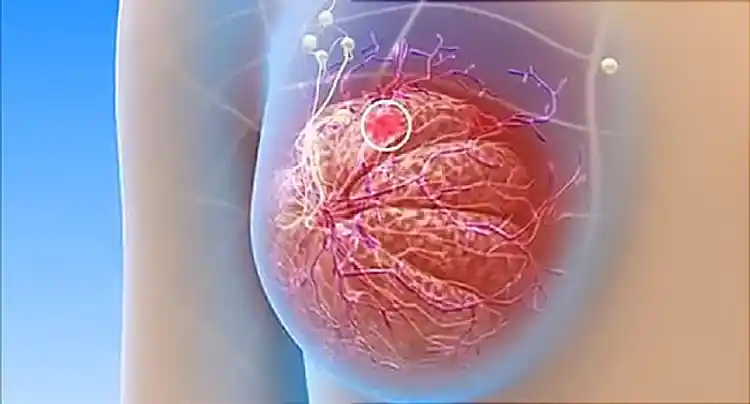What Is Metastatic Breast Cancer?

Hide Video Transcript
Video Transcript
[MUSIC PLAYING]
So common places where breast cancer can spread include the skin, the bones, the liver, lymph nodes elsewhere in the body, lung, and then sometimes, brain. So breast cancer that's spread to those areas is treatable, but typically not curable.
You know, you think about early stage breast cancer being a small lump in the breast often found on a mammogram. Stage 4 breast cancer is breast cancer that is often detected either by imaging, like CT scans, or because a patient comes in with symptoms that then lead to a diagnosis.
One of the things that we think happens is that it just takes one or two cells that break off from the initial tumor that's formed in the breast that then get into the bloodstream and then go to other places to sort of set up shop and grow. And that's part of the reason why for patients who have curable breast cancer, we often, in addition to doing surgery or radiation therapy to treat the breast cancer locally, we're giving some sort of systemic therapy, meaning treatment that goes either through the IV or in pill form to treat cancer cells, not just in the breast, but anywhere that the blood stream goes so that you're hopefully catching those cells before they get out into the bloodstream and then start to cause problems elsewhere.
So prognosis for metastatic breast cancer varies widely based on a number of different things. You know, the goal is to make metastatic breast cancer into a chronic illness. We hope the research continues to outpace their disease so that they'll be on one line of treatment for one to two or even three years where the cancer stays stable or shrinks or doesn't grow.
And then at the time when the cancer does grow again, we start a new line of treatment. For others, it takes a more aggressive course. And for almost all patients, it does shorten their life in some way, shape, or form.
JANE MEISEL
When you hear people talk about metastatic breast cancer, what that is, is basically breast cancer that has spread outside of the breast or the surrounding lymph nodes, where it initially starts, to other organs. So common places where breast cancer can spread include the skin, the bones, the liver, lymph nodes elsewhere in the body, lung, and then sometimes, brain. So breast cancer that's spread to those areas is treatable, but typically not curable.
You know, you think about early stage breast cancer being a small lump in the breast often found on a mammogram. Stage 4 breast cancer is breast cancer that is often detected either by imaging, like CT scans, or because a patient comes in with symptoms that then lead to a diagnosis.
One of the things that we think happens is that it just takes one or two cells that break off from the initial tumor that's formed in the breast that then get into the bloodstream and then go to other places to sort of set up shop and grow. And that's part of the reason why for patients who have curable breast cancer, we often, in addition to doing surgery or radiation therapy to treat the breast cancer locally, we're giving some sort of systemic therapy, meaning treatment that goes either through the IV or in pill form to treat cancer cells, not just in the breast, but anywhere that the blood stream goes so that you're hopefully catching those cells before they get out into the bloodstream and then start to cause problems elsewhere.
So prognosis for metastatic breast cancer varies widely based on a number of different things. You know, the goal is to make metastatic breast cancer into a chronic illness. We hope the research continues to outpace their disease so that they'll be on one line of treatment for one to two or even three years where the cancer stays stable or shrinks or doesn't grow.
And then at the time when the cancer does grow again, we start a new line of treatment. For others, it takes a more aggressive course. And for almost all patients, it does shorten their life in some way, shape, or form.
